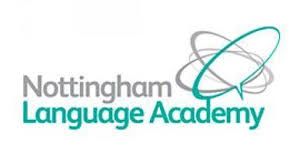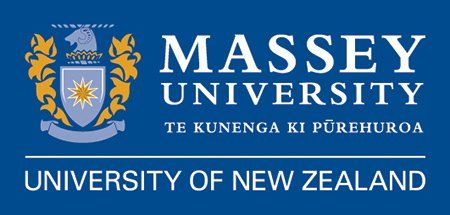
Project Management Office (PMO) – Setting Up and Management – Certified Program
Course ID: 2507210101133EGI
Course Dates : 21/07/25 Course Duration : 5 Studying Day/s Course Location: London, UK
Language: Bilingual
Course Category: Professional and CPD Training Programs
Course Subcategories: Leadership and Management Excellence
Course Certified By: * Projacs Academy
* Professional Training and CPD Programs
Certification Will Be Issued From :
KSA
Course Fees: £4,838.34
Vat Not Included in the price. VAT may vary depending on the country where the course or workshop is held.
Click to Pay
Date has passed please contact us Sales@e-s-hub.com
Course Information
Introduction
The role of a Project Management Office (PMO) has become increasingly critical in organizations striving to align project outcomes with strategic objectives. As businesses face mounting pressure to deliver projects on time, within budget, and with measurable value, the PMO serves as the linchpin for governance, standardization, and performance optimization. This course is designed to equip professionals with the skills and knowledge necessary to establish and manage a PMO effectively, ensuring it becomes a catalyst for organizational success rather than an administrative burden. By exploring frameworks such as PMBOK (Project Management Body of Knowledge) and Agile methodologies, participants will gain insights into how PMOs can adapt to diverse organizational cultures and industries.
Despite the growing recognition of PMOs, many organizations struggle to realize their full potential due to misalignment with business goals, lack of stakeholder buy-in, or insufficient resources. A common challenge is the perception of PMOs as bureaucratic entities rather than strategic partners. For instance, a case study of a multinational technology firm revealed that its PMO failed to deliver value because it focused solely on compliance without fostering innovation or collaboration. This course addresses such gaps by emphasizing the importance of tailoring PMO functions to meet specific organizational needs while maintaining flexibility to adapt to changing environments.
Mastering the principles of PMO setup and management offers significant benefits for both individuals and organizations. For professionals, it enhances career prospects by positioning them as leaders capable of driving transformational change. Organizations, on the other hand, stand to gain improved project delivery rates, reduced risks, and enhanced resource utilization. According to a report by the Project Management Institute (PMI), high-performing organizations—those with mature PMOs—are 2.5 times more likely to meet original goals and business intent compared to their low-performing counterparts. These statistics underscore the tangible impact of a well-functioning PMO.
The curriculum draws upon established theories and industry trends to provide a comprehensive learning experience. Participants will explore concepts such as portfolio management, earned value management, and adaptive leadership, all of which are integral to modern PMO operations. Additionally, the course incorporates lessons from real-world scenarios, such as the successful turnaround of a struggling PMO at a global pharmaceutical company. By implementing data-driven decision-making processes and fostering cross-functional collaboration, the organization achieved a 30% improvement in project success rates within two years.
Another key focus area is the integration of digital tools and technologies into PMO practices. With advancements in artificial intelligence, automation, and predictive analytics, PMOs have unprecedented opportunities to enhance efficiency and decision-making. However, leveraging these tools requires a solid understanding of their capabilities and limitations. Through hands-on exercises and interactive sessions, participants will learn how to select and implement appropriate technologies that align with their PMO’s objectives.
Ultimately, this course aims to empower participants to design and manage PMOs that not only meet technical requirements but also inspire trust and confidence among stakeholders. Whether you are establishing a new PMO or revitalizing an existing one, the skills acquired through this program will enable you to navigate complexities, foster innovation, and drive sustainable growth. By bridging theory and practice, the course ensures that participants leave equipped to make meaningful contributions to their organizations.
Objectives
By attending this course, participants will be able to:
Analyze the strategic role of a PMO in achieving organizational objectives and propose tailored solutions based on contextual needs.
Evaluate different PMO models (e.g., supportive, controlling, directive) and recommend the most suitable approach for specific scenarios.
Design a comprehensive framework for PMO governance, including policies, procedures, and performance metrics.
Implement best practices for resource allocation, risk management, and stakeholder engagement within a PMO structure.
Apply advanced tools and techniques, such as dashboards and predictive analytics, to monitor and optimize project performance.
Develop strategies for fostering a culture of continuous improvement and innovation within the PMO.
Assess compliance requirements and ensure adherence to relevant standards, regulations, and industry benchmarks.
Who Should Attend?
This course is ideal for:
Project managers seeking to transition into PMO leadership roles.
Senior executives responsible for overseeing multiple projects or portfolios.
Consultants tasked with advising clients on PMO implementation.
IT professionals involved in integrating technology solutions with project management processes.
These groups will find the course valuable as it provides practical insights and actionable strategies for addressing real-world challenges. While prior exposure to project management concepts is beneficial, the course is structured to accommodate intermediate learners who already possess foundational knowledge. Advanced practitioners may also benefit from the emphasis on emerging trends and innovative practices.
Training Method
• Pre-assessment
• Live group instruction
• Use of real-world examples, case studies and exercises
• Interactive participation and discussion
• Power point presentation, LCD and flip chart
• Group activities and tests
• Each participant receives a 7” Tablet containing a copy of the presentation, slides and handouts
• Post-assessment
Program Support
This program is supported by:
* Interactive discussions
* Role-play
* Case studies and highlight the techniques available to the participants.
Daily Agenda
The course agenda will be as follows:
• Technical Session 08.30-10.00 am
• Coffee Break 10.00-10.15 am
• Technical Session 10.15-12.15 noon
• Coffee Break 12.15-12.45 pm
• Technical Session 12.45-02.30 pm
• Course Ends 02.30 pm
Course Outlines
Foundations of PMO Setup
Understanding the Strategic Role of a PMO
Types of PMOs and Their Applications
Key Success Factors for PMO Implementation
Stakeholder Analysis and Engagement Strategies
Day 2:
Governance and Framework Development
Establishing PMO Policies and Procedures
Defining Roles and Responsibilities Within the PMO
Developing Performance Metrics and KPIs
Aligning PMO Objectives with Organizational Goals
Day 3:
Tools and Techniques for PMO Operations
Resource Allocation and Capacity Planning
Risk Management Frameworks for PMOs
Utilizing Dashboards and Reporting Tools
Leveraging Technology for Enhanced Efficiency
Day 4:
Compliance and Continuous Improvement
Ensuring Compliance with Industry Standards
Auditing and Quality Assurance Processes
Fostering a Culture of Innovation Within the PMO
Lessons Learned and Knowledge Sharing Mechanisms
Day 5:
Practical Applications and Case Studies
Real-World Examples of Successful PMO Transformations
Overcoming Common Challenges in PMO Management
Developing an Action Plan for Your Organization
Final Q&A and Certification Preparation



















































